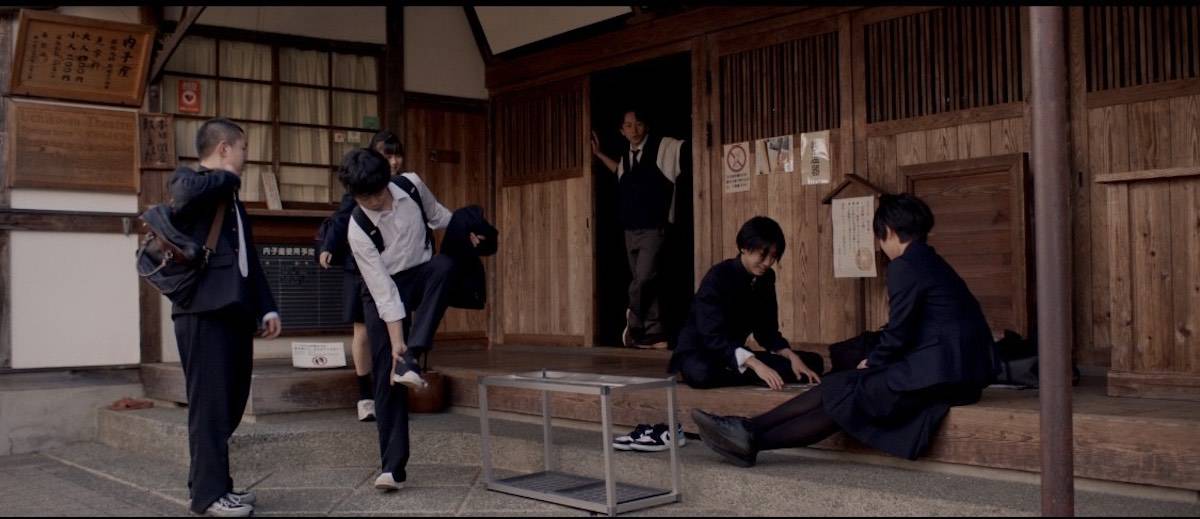It is always a pleasure to watch films that portray unremarkable (normal, one could say) love stories with realism and still manage to be entertaining. Rikiya Imaizumi does just that with “Just Only Love”, a film based on the novel “Ai Ga Nanda”, by Mitsuyo Kakuta.
Just Only Love screened at Camera Japan

Teruko is an office worker who is involved in a relationship that could only be described as one-sided. You see, she has been in love with Mamoru ever since they met at a friend's wedding, to the point that the phone calls she receives from him to meet are the only thing that matters in her life, including her friends and work. Eventually, the two of them spend a night together, and Teruko starts to believe that they will become a couple, finally. However, Mamoru does not share her feelings, as it is obvious that he spends time with her just because an alternative is not present. However, he is not impolite or exploitative towards her, he just does not share her feelings. Eventually, he meets another girl, Sumire, who is very fond of, with her, however, having the role he had in his relationship with Teruko. On a secondary axis, Yoko, Teruko's best friend, has a similar relationship with Nakamura, with her being the “dominant” one, although in a more exploitative fashion.
Imaizumi uses the story to make a number of quite realistic comments about the modern “rules” of relationships. The most obvious one regards the fact that a lot of them are almost completely one-sided, with Imaizumi exploring this concept from both sides. One side refers to the “submissive” one states that he/she either believes that he/she can turn the “dominant” one around or that is blinded by his/her love, to the point that the unresponsiveness from the other side is not visible at all. The one regarding the “dominant” one, however, is not an accusation, since Imaizumi makes a point of saying how difficult it is sometimes not to take the “easy road”, which, in this case, refers to accepting the companionship of someone who really seems to cherish you, and even more, seems happy even though you do not do much to return his/her feelings. The fact that Imaizumi explores this aspect from both sides, with sincerity, and not pointing fingers, is one of the narrative's greatest aspects.

The second one refers to the bad side of love, as represented by Teruko, a love that is, in essence, an obsession, making the one who feels it forget about everything else, in essence destroying his/her own life, on multiple levels, both professionally and socially.
The third one, which eventually becomes another central comment, derives from two parallel questions: Firstly, why do the “subservient” ones do not leave, since they are not getting almost anything back of what they offer on an emotional and practical level? Secondly, why do the “dominant” ones do not make them leave, since most of the time, they are more bothered than content? The answer, one could say for both categories, is the same: Loneliness and convenience. Imaizumi makes a point of highlighting the first through actual dialogues, but the second is presented contextually, and actually involves both parties, thus resulting in another comment: finding someone you want to have a relationship with is quite hard due to the rhythms and the circumstances of everyday life, so everyone has to compromise, either they realize it or not.
The presentation of all the aforementioned concept is exceptional, in one of the few occasions where one film justifies its (over 120 minutes) duration completely. The editing, which induces the film with a mid-tempo quite fitting to its aesthetics, and the realistic cinematography definitely help in that regard, with the same applying to a number of narrative tricks, like the surrealism deriving from Teruko speaking with her younger self, occasionally even in scenes of her past.

Furthermore, the film benefits the most from the acting, with Yukino Kishii giving a great performance as Teruko, highlighting a number of sentiments and psychological statuses, both silently and vocally, with the same artistry. The various scenes where she cannot hide her disappointment, and the ones where she fights with Nakamura and Yoko, respectively, are the highlights of her impressive effort. Ryo Narita is convincing as Mamoru, with the same applying to Mai Fukagawa as Yoko, although I felt that Ryuya Wakaba with his quite measured performance as Nakamura, and Noriko Eguchi as the eccentric but quite logical Sumire, are the ones that steal the show regarding the secondary parts.
“Just Only Love” is sincere, intelligent, realistic, thorough and quite entertaining, in an impressive package that strays far away from the silliness of the romcoms. Definitely one of the best indie films of the year.















